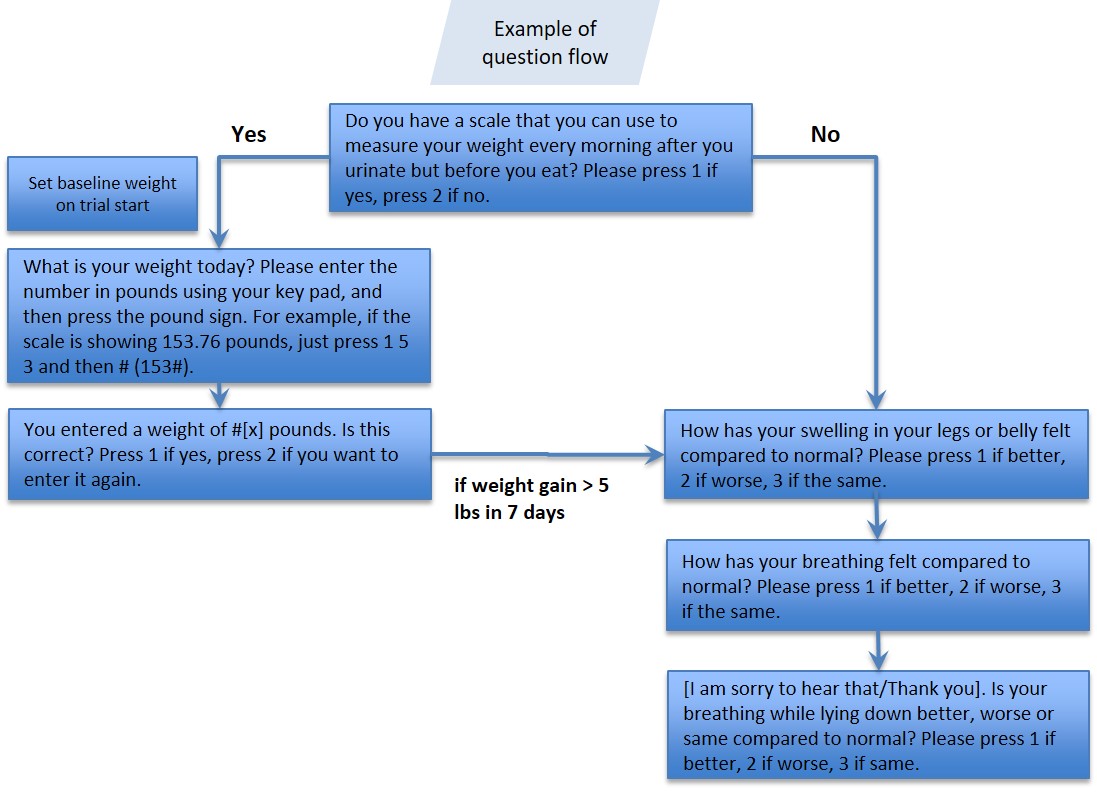Background: Heart failure (HF) is a major public health concern that affects over 5 million adults in the US. HF is among the most common reasons for hospital admissions and presents a considerable cost burden to the medical system. Patients are stabilized and carefully monitored at the hospital but often go home without adequate follow-up monitoring. Chronic care involving medication adherence, symptom monitoring, and adequate communication between patients and providers is essential to HF management and prevention of hospital readmissions. Though consistent HF management can reduce hospital readmissions and associated healthcare costs, it may be time consuming and expensive.
Purpose: To address the challenges associated with HF management, we created a SMS text-based platform, EpxHeartFailure, which allows for remote patient monitoring. Our novel platform seeks to improve chronic care management by simplifying communication between patients and providers. We hypothesized that this simple intervention will gain patient and provider acceptability and enable patients to have improved symptom stability and thus fewer decompensations.
Description: EpxHeartFailure is part of a broader telemedicine platform, Epharmix, which has been developed and applied to many different disease states, such as COPD, diabetes, and hypertension. EpxHeartFailure was designed based on collaborative interviews with academic and community physicians, nurses, and patients at Washington University School of Medicine. The system prompts patients to self-report their body weight and symptoms of dyspnea, orthopnea, and edema via SMS text messages (see attached sample questions). A weight gain >5lb over 1 week plus 1 worsening symptom or 2 worsening symptoms if patient does not have a scale triggered an alert (via text or call) to the patient’s provider. Providers then had the opportunity to contact the patient and initiate appropriate follow up care. The intervention systematically modified message frequency to parallel each patient’s symptom stability and sends providers bimonthly triaged reports that prioritizes the most unstable patients. 92 patients from a hospital in St. Louis were initially enrolled in the system. We have tracked patient engagement rates with the system and self-reported symptom stability.
Conclusions: The average response rate for patients over a 12 week period remained over 60%. A total of 1578 texts were sent, 34 alerts were generated, and 14 documented communications occurred between providers and patients as a result of alerts. We believe these results indicate acceptability of the system and demonstrate improved patient-provider communication. EpxHeartFailure provides a low-cost, minimally invasive tool to track patient symptomology to rapidly address any impending exacerbations through medication titrations and improve overall quality of life.

